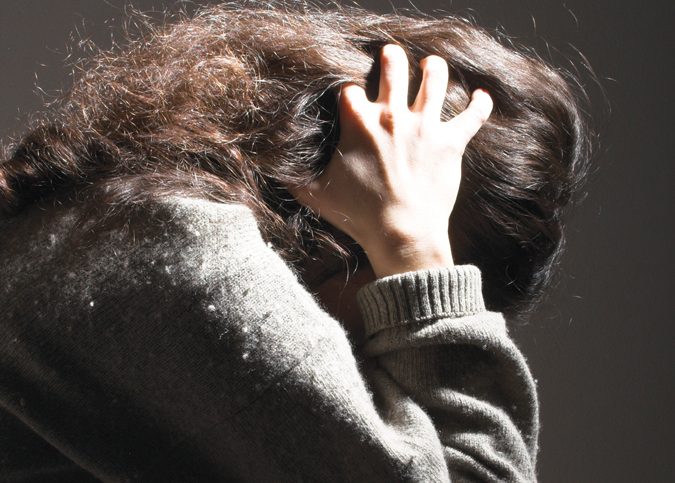by Lujain Al Mulla
It was Day 4 of Kuwait University’s annual Film Week and we’d just viewed the astonishing God Grew Tired of Us, a heart-wrenching documentary so appropriately selected by Dr. Mai Al Nakib, the event’s faithful organizer. Dr. Al Nakib fittingly included this film in this year’s roster to compliment the theme of “Diaspora.” The documentary follows 3 young South Sudanese men who have lived a life of sheer struggle, being torn from their families at a very young age, forced to immigrate by foot, first to Ethiopia and then to Kenya, in fear of persecution in their home country. These young men are part of a bigger group of refugees who were later granted the opportunity of starting afresh in the United States—facing yet another struggle of adaptation.
During the post-screening discussion, someone from the audience mentioned something about standing up in respect of the refugees and the lessons they’d supposedly learned—within that hour and a half, mind—and I rolled my eyes in cynicism. I don’t mean to question the person’s sincerity, but it seemed such a futile thing to say. I felt it condescending, how easy it must be to stand up from one’s cushioned seat in an air-conditioned venue and salute people who’d seen death at a young age, lived through famine, experienced forced separation from their families and hardship their entire life, and who were not present at the hall then. The gesture seemed so banal. I left the theatre with a heaviness in my chest.
Later that night, I felt like a spoiled parcel of guilt tied with a bow of all that I take for granted. Everything I did seemed so meaningless all of a sudden. The frivolity of it all was sickening. My dinner was a disgusting squander, as I saw it, but I still ate it. I was disgusted by my warm bed, but I still slept in it. I resented the fact that I had it easy growing up, but was also thankful I didn’t have to have it any other way—glad but resentful. The dichotomy was eating at me.
I have watched documentaries that expose other calamities in this world and attended seminars set up to raise awareness of such issues. They always leave me feeling the same way; I feel an ardent urge to do something about fixing the situation, but then this feeling gradually dies down in a number of days into a lump of apathy, not because I lose interest in the cause, but because the infinitude of all concurrent causes worth involving oneself in becomes overwhelming, and I digress.
Almost two years ago, I decided to become a pesco-vegan. I cut out factory farmed meat, dairy and eggs from my diet. It was a decision I had made after long-thought triggered by—surprise, surprise—expository documentaries I had watched. Yet, still, I feel like a hypocrite whenever I chip in for a non-vegan birthday cake for a co-worker—even though I turn a piece of it down when passed to me—or order a vegan dish at a restaurant that serves factory-farmed meat and, therefore, am still contributing to the industry.
I wish I could feel good about myself whenever I spare some change for a boy selling glow-sticks at a traffic light, but I don’t. I feel petty and little. I feel ashamed of the pretense of it all—me, on my high horse, giving out my miserly change. Even when I do contribute more to a cause, I still feel guilty. A part inside me wants to devote my life to the betterment of others’ lives but a bigger part of me is a coward, too afraid of losing what it is that I have in mine: my home, my family, a well-off living. My excuse is how busy I am—getting on with my own life. I wonder if I truly am too consumed in the future I am building for myself or if I use it as a fallacious argument to avoid devoting my time to aiding those less fortunate.
The defense mechanism so many of us have managed to cocoon ourselves in is conscious ignorance, as paradoxical as the term may sound. We realize we have been unfairly endowed with luxuries that the greater population of this world have not, and often choose not to dwell upon this fact. The way many of us deal with such guilt is by donating money or, like the lady in the screening-hall, by extending a gesture of respect and recognition, and, ultimately, recoiling back to a consciously ignorant state. Still, I curl my lip in cynicism at the plasticity of it all. I am ever jealous of those who have managed to leave so much, if not everything, behind and spend all their time and effort in fighting an injustice.
I wish I could conclude this article with a philosophy that makes everything ok, but I can’t. I find myself going on and on, hoping to come by an epiphany that helps me realize that it’s ok to just be grateful for what I have, but it hasn’t hit me yet, and I know that as soon as I stop typing, put my laptop away and curl up under my covers, the shadows in my room will smother me with feelings of shame. I’ll leave you with this note, though: love your family, appreciate the luxuries and always be thankful to the greater power you believe has blessed you with what you have. But always, always, leave room for bursts of self-loathing and self-deprecation, so that I can at least deal with those bursts knowing I’m not having them alone.








